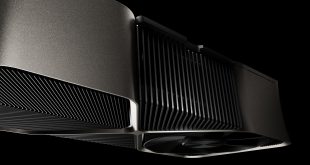We reported recently about Zalman's attack on the entry level chassis market with the T1, but it seems that the Korean innovation machine is not happy stopping there. With one eye on becoming a graphic card manufacturer itself, Zalman has been worrying about the weight of modern GPU solutions.
How many of us sat through physics lessons?
How many of you budding gurus stayed awake long enough to remember ‘moments about a point'?
You can go research Wikipedia etc for the full monty in terms of equations etc, but first let's give you a practical demonstration that you can try for yourselves at home.
Go to a cupboard door – one that normally opens and closes easily enough. Put one finger on the outside edge and try to moe the door. Simples.
Now try the same thing, with one finger only, near the hinge. Impossibles.
What you have just discovered is the relationship between force and distance when it comes to rotating something about a point. In our practical demo, we used the hinge – which IS designed to rotate, but with a large graphic card, the force gets concentrated at the point where the card meets the board, i.e. your PCI Express slot. Nasty.
While it takes a MASSIVE effort to prevent damage in the slot itself, only a tiny finger touch wold be required at the part of the graphic card that's furthest from the PCI Express slot.
Cue Zalman engineers and their plastic bracket.
KitGuru says: Simple concept, scientifically sound and very practical. To ensure it works, you're gonna need to bounce a package around the globe with the help of DHL/UPS, but I should work – so we applaud the MS 800 for making the effort. Just one question: Can it handle all card configurations for AMD and nVidia?
 KitGuru KitGuru.net – Tech News | Hardware News | Hardware Reviews | IOS | Mobile | Gaming | Graphics Cards
KitGuru KitGuru.net – Tech News | Hardware News | Hardware Reviews | IOS | Mobile | Gaming | Graphics Cards




One comment
Pingback: ImPuls.Name » Zalman предлагает кронштейн для поддержки видеокарт